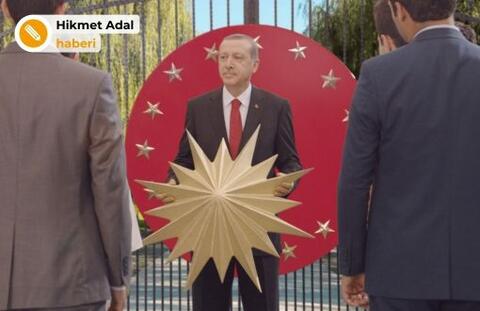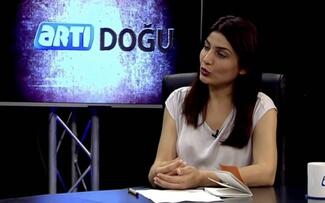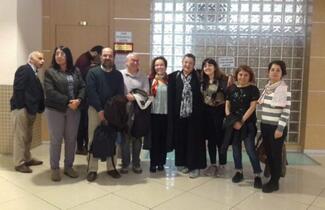
The European Court of Human Rights (ECtHR) has handed down its judgement on the conviction of Vedat Şorli for "insulting the President" as per the Article 299 of the Turkish Penal Code (TCK).
The ECtHR has concluded that the right to freedom of expression of Şorli has been violated by his prison sentence of 11 months, 20 days in 2017 over a photo and cartoon that he posted on Facebook.
Noting that the TCK 299 complies with neither the European Convention on Human Rights (ECHR) nor freedom of expression, the ECtHR has indicated that "when the state aims to defend the dignity of the President, it cannot develop a protection privilege special for him or her."
The Court has also emphasized that the Article 299 of the TCK may have a deterrent effect on the individual in expressing opinions about issues that are related to the public good. This ruling is important in that it is the first ruling and sets a legal precedent in that regard.
Referring to the Committee of Ministers of the Council of Europe's "Declaration on freedom of political debate in the media" adopted in 2014, the ECtHR ruling has cited the following articles of the declaration:
Conscious that some domestic legal systems still grant legal privileges to political figures or public officials against the dissemination of information and opinions about them in the media, which is not compatible with the right to freedom of expression and information as guaranteed by Article 10 of the Convention;
II. Freedom to criticise the state or public institutions
"The state, the government or any other institution of the executive, legislative or judicial branch may be subject to criticism in the media. Because of their dominant position, these institutions as such should not be protected by criminal law against defamatory or insulting statements. Where, however, these institutions enjoy such a protection, this protection should be applied in a restrictive manner, avoiding in any circumstances its use to restrict freedom to criticise. Individuals representing these institutions remain furthermore protected as individuals.
VI. Reputation of political figures and public officials
"Political figures should not enjoy greater protection of their reputation and other rights than other individuals, and thus more severe sanctions should not be pronounced under domestic law against the media where the latter criticise political figures. This principle also applies to public officials; derogations should only be permissible where they are strictly necessary to enable public officials to exercise their functions in a proper manner.
VIII. Remedies against violations by the media
"Political figures and public officials should only have access to those legal remedies against the media which private individuals have in case of violations of their rights by the media. (...)
"Defamation or insult by the media should not lead to imprisonment, unless the seriousness of the violation of the rights or reputation of others makes it a strictly necessary and proportionate penalty, especially where other fundamental rights have been seriously violated through defamatory or insulting statements in the media, such as hate speech."
Council of Europe, Venice Commission decisions
Noting that several member states of the Council of Europe have abolished prison sentences foreseen for insult charges, the ECtHR ruling on Vedat Şorli has indicated that prison sentences are still given for insult in some states such as Azerbaijan and Turkey.
The ECtHR ruling has recalled that the Parliamentary Assembly of the Council of Europe (PACE) is concerned about this ongoing practice, reminding Turkey that the PACE has demanded the abolishment of the prison sentences given for insult charges without delay.
The ECtHR has also cited an opinion of the Venice Commission, an advisory body of the Council of Europe, composed of independent experts in the field of constitutional law. In this opinion from the year 2016, the Venice Commission noted that the TCK's Articles 216 (Provoking the Public to Hatred, Hostility or Degrading), 299 (Insulting the President), 301 (Degrading Turkish Nation, State of Turkish Republic, the Organs and Institutions of the State) and 314 (Armed Organization) did not comply with the European norms in their current state or in practice.
Turkey convicted
Following these references, the ECtHR has pronounced its ruling and ruled that Vedat's Şorli's freedom of expression, as guaranteed by the ECHR, has been violated by Turkey. The country has been sentenced to pay 7,500 Europe in damages to Şorli. The ECtHR has also demanded that the TCK 299 be made compatible with the ECtHR's jurisprudence.


